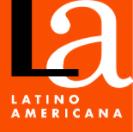Collaborative ethnographic methods
dismantling the ‘anthropological broom closet’?
Keywords:
anthropology, collaborative research, decolonization, politics of knowledge, Latin AmericaAbstract
Scholars and activists are increasingly carrying out collaborative research to respond to the asymmetrical privileges built into Western science by partnering with local communities and explicitly orienting their research towards their political aims. In this article, we examine this important shift, tracing the ways it intersects with other important trends in the field, especially the politics of knowledge and decolonization. We discuss the tendencies of collaborative research in Latin America to examine the context and political agendas of those involved and to show what is produced. We suggest that collaboration, like other seemingly progressive discourses like decolonization, can be the site of governance as well as liberation, as it is increasingly the norm for government agencies, research institutions, and non-governmental organizations to promote participatory methods to further their own agendas. Considering the dilemmas in our different research projects on indigenous politics in Bolivia, we urge careful analysis of the multiple and changing standpoints of our collaborators in order not to reconstruct essentialized notions of indigeneity. Ultimately, we see the need to acknowledge the tight spaces of negotiation that we all find ourselves drawn into when we undertake collaborative endeavors.References
Allen, Jarafi Sinclaire y Ryan Cecil Jobson (2016). “The Decolonizing Generation: (Race And) Theory in Anthropology since the Eighties”, Current Anthropology, Vol. 57, N° 2, pp. 129-148.
Aragón, Orlando. (2018). “Traducción intercultural y ecología de saberes jurídicos en la experiencia de Cherán, México. Elementos para una nueva práctica crítica y militante del derecho”, Latin American and Caribbean Ethnic Studies,Vol. 15, N° 1, pp. 86-103.
Barragán, Rosana (2008). “Bolivia: Bridges and Chasms”, en: A Companion to Latin American Anthropology, editado por D. Poole. Malden, MA, Blackwell Publishing, pp. 32-55.
Barrero, Cesar Abadia y Hector Camilo Ruiz Sánchez (2018). “Enfrentando al neoliberalismo en Colombia: Arte y colaboración en un hospital en ruinas”, Etnográfica, Vol. 22, N° 3, pp. 575-603.
Bautista, Raul (2010). “¿Qué significa el Estado plurinacional?”, en: Descolonización en Bolivia, Cuatro Ejes para Comprender el Cambio, editado por G. Gonzalo y J. Dulon. La Paz, Vicepresidencia del Estado, pp. 169-206.
Bishop, Russell (1999). “Kaupapa Maori Research: An Indigenous Approach to Creating Knowledge”, en: Maori and psychology: Research and practice. Proceedings of a symposium, patrocinado por the Maori & Psychology Research Unit, Department of Psychology, University of Waikato, Hamilton, NZ, University of Waikato. doi:10.1016/s0021-9673(99)00837-7.
Blaser, Mario (2013). Un Relato de la Globalización desde el Chaco. Cauca, Editorial Universidad del Cauca.
Briones, Claudia (2017). “Research through Collaborative Relationships: A Middle Ground for Reciprocal Transformations and Translations?”, Collaborative Anthropologies, Vol. 9, N° 1-2, pp. 32-39. doi:10.1353/ cla.2016.0010.
Briones, Claudia; Lorena Cañuqueo; Laura Kropff y Miguel Leuman (2007). “A Perspective from the South of the South (Patagonia, Argentina)”, Latin American and Caribbean Ethnic Studies, Año 2, N° 1, pp. 69-91. doi:10.1080/ 17442220601167368.
Cañuqueo, Lorena (2018). “Trayectorias, academia y activismo mapuche”, Avá, Dossier: Intelectuales indígenas y ciencias sociales en América Latina. Consulta 18 de agosto 2019. http://www.ava.unam.edu.ar/images/33/n33a03.pdf
Clifford, James y George E. Marcus, eds. (1986). Writing Culture: The Poetics and Politics of Ethnography. Oakland, University of California Press.
Collins, Patricia Hill (2000). “Gender, Black Feminism, and Black Political Economy”, The Annals of the American Academy of Political and Social Science, Vol. 568, N° 1, pp. 41-53. doi:10.1177/ 000271620056800105.
Copa, Magali Vianca (2017). “Dispositivos de ocultamiento en tiempos de pluralismo jurídico en Bolivia”. Tesis de Maestría, Universidad Autónoma de San Luis Potosí, México.
Copa, Magali Vianca, Amy Kennemore y Elizabeth López (2018). Desafíos y potencialidades de la autonomía y la gestión territorial indígena en el marco de los procesos de desarrollo. La Paz, UNITAS.
De la Cadena, Marisol (2015). Earth Beings, Ecologies of Practice across Andean Worlds. Durham, NC, Duke University Press.
De la Cadena, Marisol y Orin Starn, eds. (2007). Indigenous Experience Today. Oxford, Berg Publishers.
Deloria, Vine Jr. [1969] (1988). Custer Died for Your Sins. New York, Macmillian.
Du Bois, William Edward B. [1903] (1991). The Souls of Black Folk: Essays and Sketches. Chicago, A. C. McClurg.
Engle, Karen (2018). El desarrollo indígena, una promesa esquiva. Derechos, cultu-ra, estrategia. Bogotá, Universidad de los Andes.
Escobar, Arturo (2008). Territories of Difference: Place, Movements, Life, Redes. Durham, NC, Duke University Press.
Fals Borda, Orlando (1987). “The Application of Participatory Action-research in Latin America.”, International Sociology, Vol.2, N° 4, pp. 329-347. doi:10.1177/026858098700200401.
Fals Borda, Orlando (2015). “Una sociología sentipensante para América Latina.” Manuel Moncayo (coord.). Buenos Aires, CLACSO. http://biblioteca.clacso.edu.ar/clacso/se/20151027053622/ AntologiaFalsBorda.pdf
Fanon, Franz. [1961] (1963). Los condenados de la tierra. México, Fondo de Cultura Económica.
Ferguson, James (1990). The Anti-politics Machine: ‘Development’, Depoliticization and Bureaucratic Power in Lesotho. Minneapolis, University of Minnesota Press.
Freire, Paulo (1970). Pedagogía del oprimido. Traducido por Jorge Mellado. México DF, Siglo XXI Editores.
Friedlander, Judith (1975). Being Indian in Hueyapan: A Study of Forced Identity in Contemporary Mexico. New York, St. Martin’s Press.
Gallois, Dominique Tilkin, Lúcia Szmrecsáyi, Aikyry Wajãpi, Jawapuku Wajãpi y Pesquisadores da Terra Indígena Wajãpi (2013). “Saberes Wajãpi: Formação de pesquisadores e valorização de registros etnográficos indígenas”, en: Otros Saberes: Collaborative Research on Indigenous and Afro-descendant Cultural Politics, editado por Charles Hale y Lynn Stephen, 56-81. Sante Fe, NM, School for Advanced Research Press.
Gordon, Edmund T. (1991). “Anthropology and Liberation”, en: Decolonizing Anthropology: Moving Further toward an Anthropology for Liberation, editado por Faye Harrison. Washington DC, American Anthropological Association, pp. 149-167.
Greenwood, Davydd J. (2008). “Theoretical Research, Applied Research, and Action Research”, en: Engaging Contradictions: Theory, Politics, and Methods of Activist Scholarship, editado por C. Hale. Oakland: University of California Press.
Greenwood, Davydd J. y Morten Levin. 1998. Introduction to Action Research. Social Research for Social Change. London, SAGE, pp. 319-340.
Hale, Charles R., ed. (2008). Engaging Contradictions: Theory, Politics, and Methods of Activist Scholarship. Oakland, University of California Press.
Hale, Charles R. y Rosamel Millamán (2018). “Privatization of the ‘Historic Debt’? Mapuche Territorial Claims and the Forest Industry in Southern Chile”, Latin American and Caribbean Ethnic Studies Special Issue Identity politics and indigeneity in neoliberal Chile Vol. 13, N° 3: en prensa. doi:10.1080/ 17442222.2018.1510658.
Hale, Charles R. y Lynn Stephen, eds. (2013). Otros Saberes: Collaborative Research on Indigenous and Afrodescendant Cultural Politics. Santa Fe, NM, School for Advanced Research Press.
Haraway, Donna (1988). “Situated Knowledges: The Science Question in Feminism and the Privilege of Partial Perspective”, Feminist Studies, Vol.14, N° 3, pp. 575-599. doi:10.2307/3178066.
Harding, Sandra (1986). The Science Question in Feminism. Ithaca, Cornell University Press.
Harrison, Faye. V. (1991). Decolonizing Anthropology: Moving Further toward an Anthropology for Liberation. Washington, DC, Association of Black Anthropologists, AAA.
Horton, Myles y Paulo Freire (1990). We Make the Road by Walking, Conversations on Education and Social Change. Philadelphia, Temple University Press.
Jones, Alison y Kuni Jenkins (2014). “Rethinking Collaboration: Working the Indigene-Colonizer Hyphen”, en: Handbook of Critical and Indigenous Methodologies, editado por N. Denzin, Y. Lincoln y L. T. Smith. Thousand Oaks, Sage Publications, pp. 471-487.
Lewis, Diane (1973). “Anthropology and Colonialism”, Current Anthropology,Vol. 14, N° 5, pp. 581-602. doi:10.1086/ 201393.
Leyva, Xochitl y Shannon Speed (2008). “Hacia la investigación descolonizada: Nuestra experiencia de colabor”, en: Gobernar (en) la diversidad: Experiencias indígenas desde América Latina. Hacia la investigación de co-labor, editado por Xochitl Leyva, Araceli Burguete y Shannon Speed. México DF, CIESAS, FLACSO Ecuador y FLACSO Guatemala, pp. 34–59.
Loperena, Christopher, Rosalva Aída Hernández Castillo y Morena Mora (2018). “Los retos del peritaje cultural. El antropólogo como perito en la de-fensa de los derechos indígenas”, Desacatos, N° 57 (Mayo-Agosto), pp. 8-19. doi:10.29340/57.1947.
Marcus, George E. (1997). “The Uses of Complicity in the Changing Mise-en-scene of Anthropological Fieldwork”, Representations, N° 58, pp. 85-108. Special Issue The Fate of ‘Culture’. doi:10.2307/ 2928816.
Mignolo, Walter (2000). Historias locales/diseños globales. Colonialidad, conocimientos subalternos y pensamiento fronterizo. Madrid, Akal.
Moreton-Robinson, Aileen (2013). “Towards an Australian Indigenous Women’s Standpoint Theory: A Methodological Tool”, Australian Feminist Studies, Vol. 28, N° 78, pp. 331–347. doi:10.1080/ 08164649.2013.876664.
Pérez, Elizardo [1962] (2015). Warisata. La Escuela-Ayllu. La Paz, E. Burillo.
Perry, Keisha-Khan y Joanne Rappaport (2013). “Making a Case for Collaborative Research with Black and Indigenous Social Movements in Latin America”, en: Otros Saberes: Collaborative Research on Indigenous and Afro-Descendant Cultural Politics, editado por Charles R. Hale y Lynn Stephen. Santa Fe, NM, School for Advanced Research Press, pp. 30-48.
Postero, Nancy (2013). “Introduction: Negotiating Indigeneity”, Latin American and Caribbean Ethnic Studies, Vol. 8, N° 2, pp. 107-121. doi:10.1080/17442222.2013.810013.
Postero, Nancy (2017). The Indigenous State: Race, Politics, and Performance in Plurinational Bolivia. Oakland, University of California Press. http://www.luminosoa.org/site/books/10.1525/luminos.31/
Povinelli, Elizabeth A. (2011). Economies of Abandonment: Social Belonging and Endurance in Late Liberalism. Durham, NC, Duke University Press.
Quijano, Aníbal (1992). “Colonialidad y Modernidad/racionalidad”, Perú Indígena, Vol. 13, N° 29, pp. 11-20.
Rancière, Jacques (1991). The Ignorant Schoolmaster. Vol. 1. Stanford, CA, Stanford University Press.
Rappaport, Joanne (2005). Intercultural Utopias: Public Intellectuals, Cultural Experimentation, and Ethnic Pluralism in Colombia. Durham, NC, Duke University Press.
Rappaport, Joanne (2017). “Rethinking the Meaning of Research in Collaborative Relationships”, Collaborative Anthropologies, Vol. 9, N° 1-2, pp. 1-31. doi:10.1353/cla.2016.0009.
Reinaga, Fausto (1978). El pensamiento amáutico. La Paz, Partido Indio de Bolivia.
Rivera Cusicanqui, Silvia (2010). Ch’ixinakax Utxiw: Una Reflexión Sobre Prácticas y Discursos Descolonizadores. Buenos Aires, Tinta Limón.
Rivera Cusicanqui, Silvia y René Arze (1986). “Taller de Historia Oral Andina: Proyecto de investigación sobre el espacio ideológico de las rebeliones andinas a través de la historia oral (1900–50)”, en: Estados y naciones en los Andes. Hacia una historia comparativa: Bolivia, Colombia, Ecuador, Perú, editado por J. P. Deler y Y. Saint-Geours. Vol. 1. Lima, IEP, IFEA, pp. 83-99.
Scheper-Hughes, Nancy (1995). “The Primacy of the Ethical: Propositions for a Militant Anthropology”, Current Anthropology, Vol. 36, N° 3, pp. 409-440. doi:10.1086/204378.
Sieder, Rachel ed. (2017). Exigiendo justicia y seguridad: Mujeres indígenas y pluralidades legales en América Latina. México, CIESAS.
Simpson, Audra (2014). Mohawk Interruptus: Political Life across the Borders of Settler States. Durham, NC, Duke University Press.
Smith, Linda Tuhiwai (1999a). Decolonizing Methodologies: Research and Indigenous Peoples. London, Zed Books.
Smith, Linda Tuhiwai (1999b). “Kaupapa Maori Methodology: Our Power to Define Ourselves.” http://www.hauora.com/RESEARCH/PUBLISHED/KaupapaMaoriMethodology/tabi
Solano, Xochitl Leyva (2011). “Walking and Doing: About Decolonial Practices”, Collaborative Anthropologies, N° 4, pp. 119-138. doi:10.1353/cla. 2011. 0006.
Spedding, Allison (2016). “¿Cosmopraxis, conciliación o cobardía? Análisis de unos libros de justicia en los Yungas”, Temas Sociales, N° 38, pp. -–268.
Stephenson, Marcia (2002). “Forging an Indigenous Counterpublic Sphere: The Taller De Historia Oral Andina in Bolivia”, Latin American Research Review, Vol. 37, N° 2, pp. 99-118.
Tallbear, Kim (2013). Native American DNA: Tribal Belonging and the False Promise of Genetic Science. Minneapolis, University of Minnesota Press.
Tallbear, Kim (2014). “Standing with and Speaking as Faith: A Feminist-Indigenous Approach to Inquiry”, Journal of Research Practice, Vol. 10, N° 2, pp. 1-7.
Ticona Alejo, Esteban (2010). Saberes, conocimientos y prácticas anticoloniales del pueblo aymara-quechua en Bolivia. La Paz, Plural.
Vasco, Luis Guillermo (2011). “Rethinking Fieldwork and Ethnographic Writing”, Collaborative Anthropologies, N° 4, pp. 18-66. doi:10.1353/cla.2011. 0015.
Wainwright, Joel y Joe Bryan (2009). “Cartography, Territory, Property: Postcolonial Reflections on Indigenous Counter-mapping in Nicaragua and Belize”, Cultural Geographies, Vol. 16, N° 2, pp. 153-178. doi:10.1177 /1474474008101515.
Willis, William. S. (1972). “Skeletons in the Anthropological Closet”, en: Reinventing Anthropology, editado por D. Hymes. New York, Pantheon Books, pp. 121-152.
























